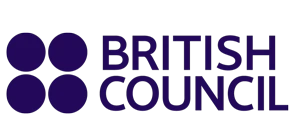The UK remains a top destination for students from around the world thanks to world-recognised degrees, compact course lengths, and strong links between universities and industry. Many international applicants choose programs that combine practical learning, clear career routes, and global reputation. Below we run through ten subjects that consistently attract overseas students, explain what to expect in each degree, outline typical career destinations, and flag notes on fees and programme shape.
1. Business and Management
Business degrees teach the fundamentals of running organisations, from strategy and marketing to operations and leadership. Most courses include case studies, group projects and options for placements or internships. Specialisms often include entrepreneurship, international business and supply-chain management.
Typical fees: mid-range for international students.
Career paths: management trainee programmes, consultancy, brand management, and startup founder.
2. Accounting and Finance
Accounting and finance programmes focus on financial reporting, corporate finance, auditing, tax law and investment analysis. Many courses are structured to map to professional qualifications, giving graduates exemptions from parts of exams for bodies like ACCA or CIMA.
Typical fees: moderate to high, depending on the university.
Career paths: chartered accountant, financial analyst, auditor, and investment banking roles.
3. Law
An undergraduate law degree gives a solid grounding in legal principles such as contract, tort, criminal and constitutional law. Programmes often offer mooting, pro bono clinics and work placements with firms or courts. Graduates either progress to professional training or apply their analytical skills in other sectors.
Typical fees: mid-to-high for international students.
Career paths: solicitor, barrister (with further professional training), legal consulting, compliance.
4. Economics
Economics combines theory and quantitative methods to analyse markets, policy and global trends. Courses emphasise data analysis and econometrics alongside macro and microeconomic theory. Economics graduates are prized for roles requiring strong analytical thinking.
Typical fees: moderate to high.
Career paths: economic analyst, policy advisor, banking, consulting, and research roles.
5. Art, Design & Creative Technologies
Creative degrees include fine art, graphic design, animation, fashion and digital media. Programmes are studio-based, with practical projects, portfolios and exhibition opportunities. The creative sector also thrives on freelance and entrepreneurial careers.
Typical fees: moderate to high (specialist facilities may increase costs).
Career paths: designer, animator, illustrator, creative director, gallery or studio professional.
6. Computer Science & Software Engineering
Computer science degrees cover programming, systems design, AI, cybersecurity and data science. Universities now embed practical labs, hackathons and industry projects, making graduates immediately employable in tech roles. Students can also pursue placement years with leading companies.
Typical fees: high in many institutions.
Career paths: software developer, data scientist, cybersecurity specialist, systems engineer.
7. Mechanical and General Engineering
Engineering degrees teach design, materials, thermodynamics and systems thinking, combining theory with hands-on labs and project work. Many programmes offer accredited pathways leading to chartered engineer status.
Typical fees: high for lab-intensive programmes.
Career paths: mechanical engineer, product design, automotive & aerospace roles, renewable energy engineering.
8. Politics, International Relations & Public Policy
These programmes explore government, diplomacy and public affairs, often with options for internships in political offices or NGOs. Graduates gain research, policy analysis and communication skills applicable across public, private and third sectors.
Typical fees: mid-range.
Career paths: policy analyst, diplomat, campaign manager, think-tank researcher.
9. Electrical & Electronic Engineering
This field focuses on circuits, communications, control systems and power generation. With the growth in renewables, telecoms and embedded systems, demand for electrical engineering graduates is strong. Many courses contain practical design projects and lab work.
Typical fees: high for equipment-heavy programmes.
Career paths: electronics engineer, systems designer, telecommunications, renewable energy engineer.
10. Biological & Biomedical Sciences
Biological sciences span molecular biology, ecology, biotechnology and medical sciences. Courses combine lab practicals and research projects, preparing students for careers in research, healthcare or the biotechnology industry. For clinical professions, additional professional training is required.
Typical fees: moderate to high.
Career paths: research scientist, lab technician, biotech industry roles, progression to clinical training or postgraduate research.
How long do UK undergraduate degrees take?
Most bachelor’s degrees in England, Wales and Northern Ireland last three years; honours variants typically include a final-year research project. In Scotland, many programmes run for four years. Some degrees offer integrated placement years (sandwich courses), extending duration but boosting employability.
Fees and living costs — what international students should budget for
Tuition fees vary widely by subject and university. As a rough guide, international undergraduates can expect anywhere from mid-range fees for arts and humanities up to higher fees for medicine, engineering and computer science. Living costs depend on location — London is substantially more expensive than regional cities. Budget realistically for rent, food, transport, study materials and personal expenses.
Choosing the right course and university
-
Match your subject to career goals: choose applied courses if you want practical skills and placements.
-
Check professional accreditation for careers that require it (accounting, engineering, law).
-
Consider course structure: assess whether a placement year, study abroad option or final-year project suits you.
-
Research employability stats and industry links: strong employer ties often lead to internships and graduate roles.
Application tips for international applicants
-
Start early: UCAS deadlines and scholarship windows vary — prepare transcripts, references and your personal statement with time to spare.
-
Focus your personal statement on motivation and evidence of interest — project work, internships, or subject-related achievements.
-
Prepare for any required tests or portfolios (art portfolios, admissions tests for law/medicine).
-
Consider scholarships and financial aid: many universities run merit awards or country-specific bursaries.
How these degrees translate into careers after graduation
UK degrees are highly regarded globally, and many employers value the practical experiences UK students gain through placements and projects. Graduates often enter graduate schemes, specialist industry roles or continue to postgraduate study. The UK’s post-study work options also allow graduates time to build local experience.
Final thoughts
Choosing the right undergraduate degree in the UK is a balance between your interests, career ambitions and practical considerations like cost and course format. Whether you aim for a creative career, a tech role, or a position in finance or policy, UK universities provide a wide range of pathways and strong employer connections to help you succeed.
If you’d like personalised help selecting courses, preparing UCAS applications, or finding scholarships that match your profile, click here to book a free counselling session and get step-by-step support for your UK application.









